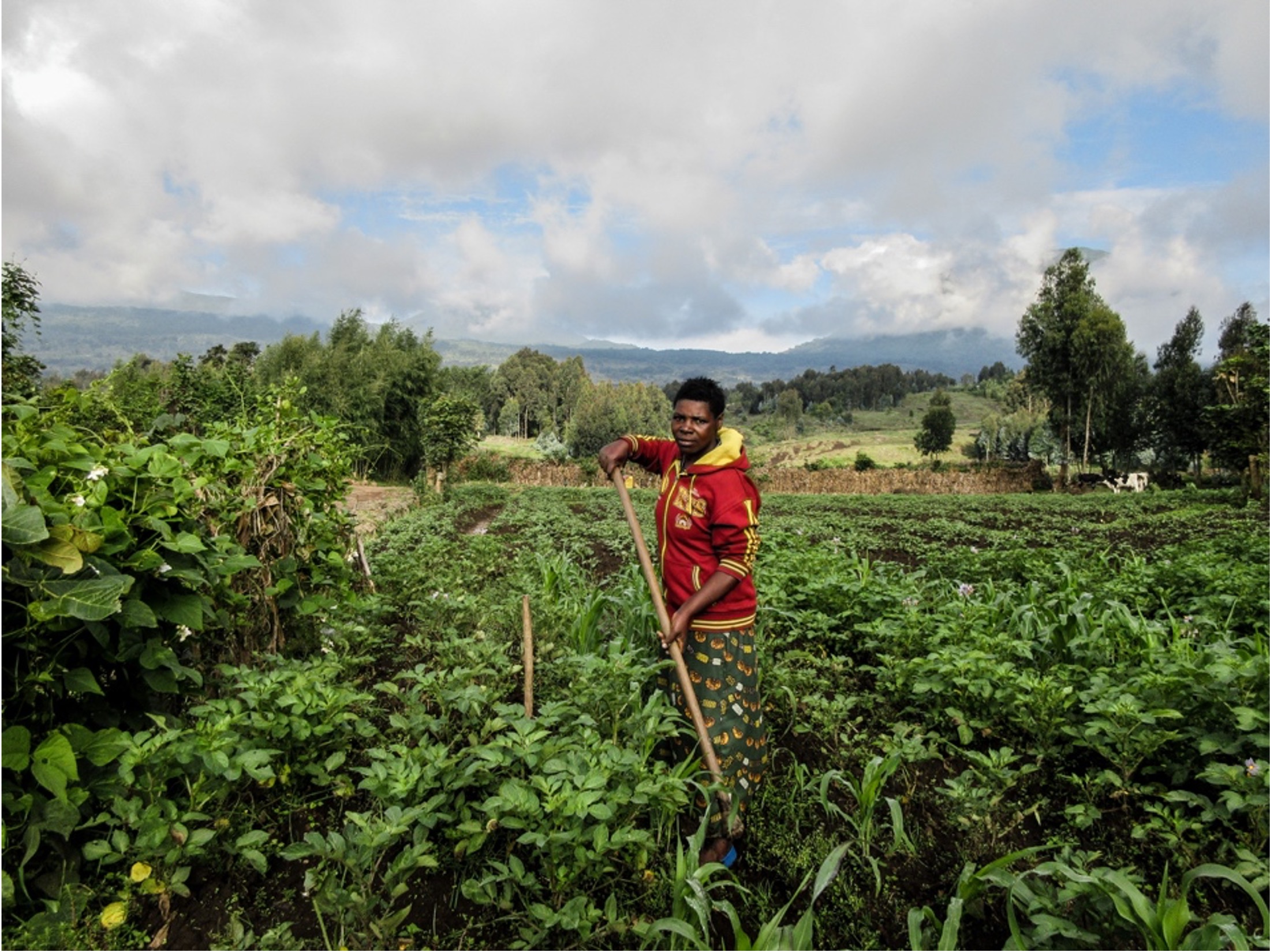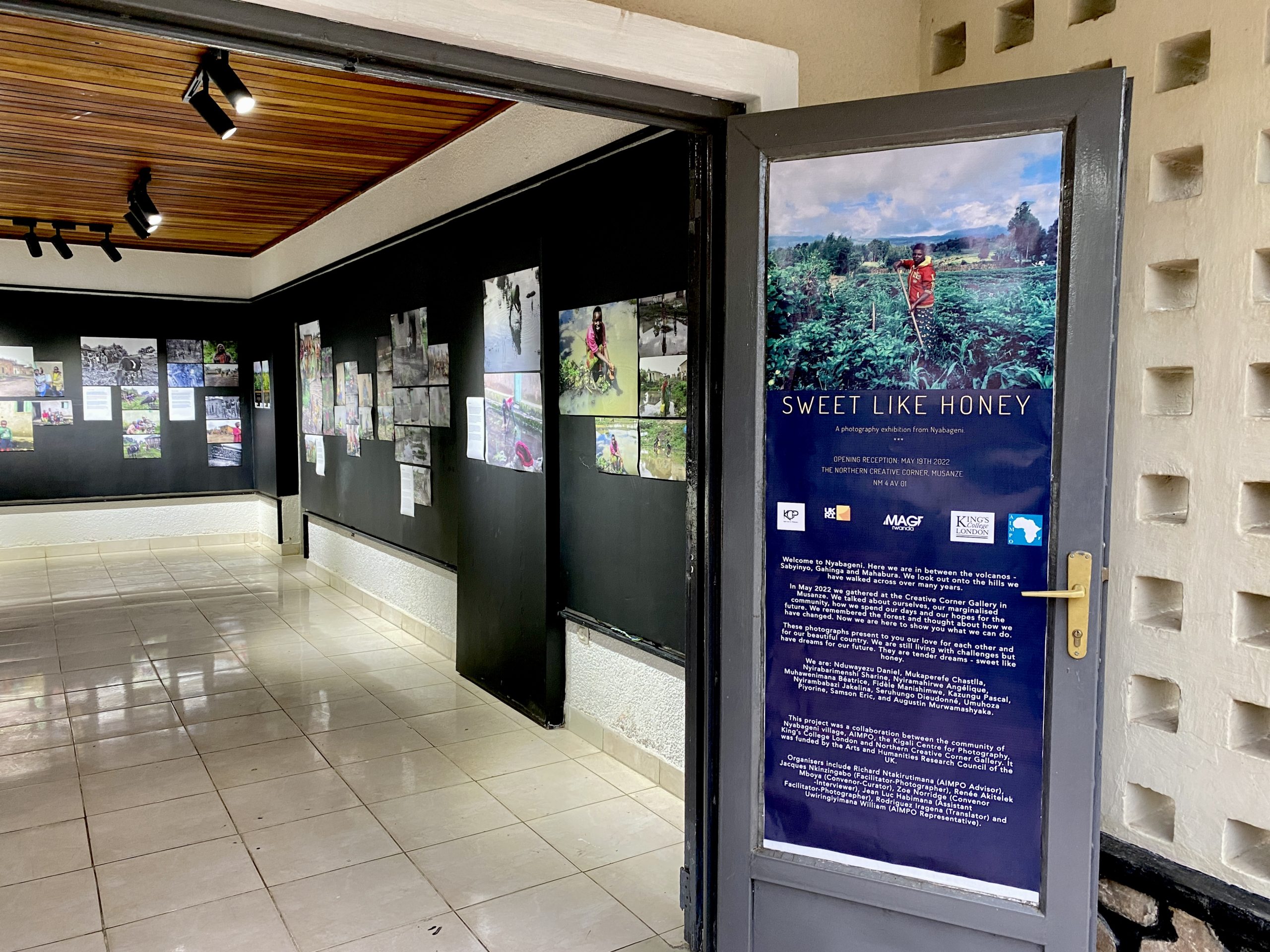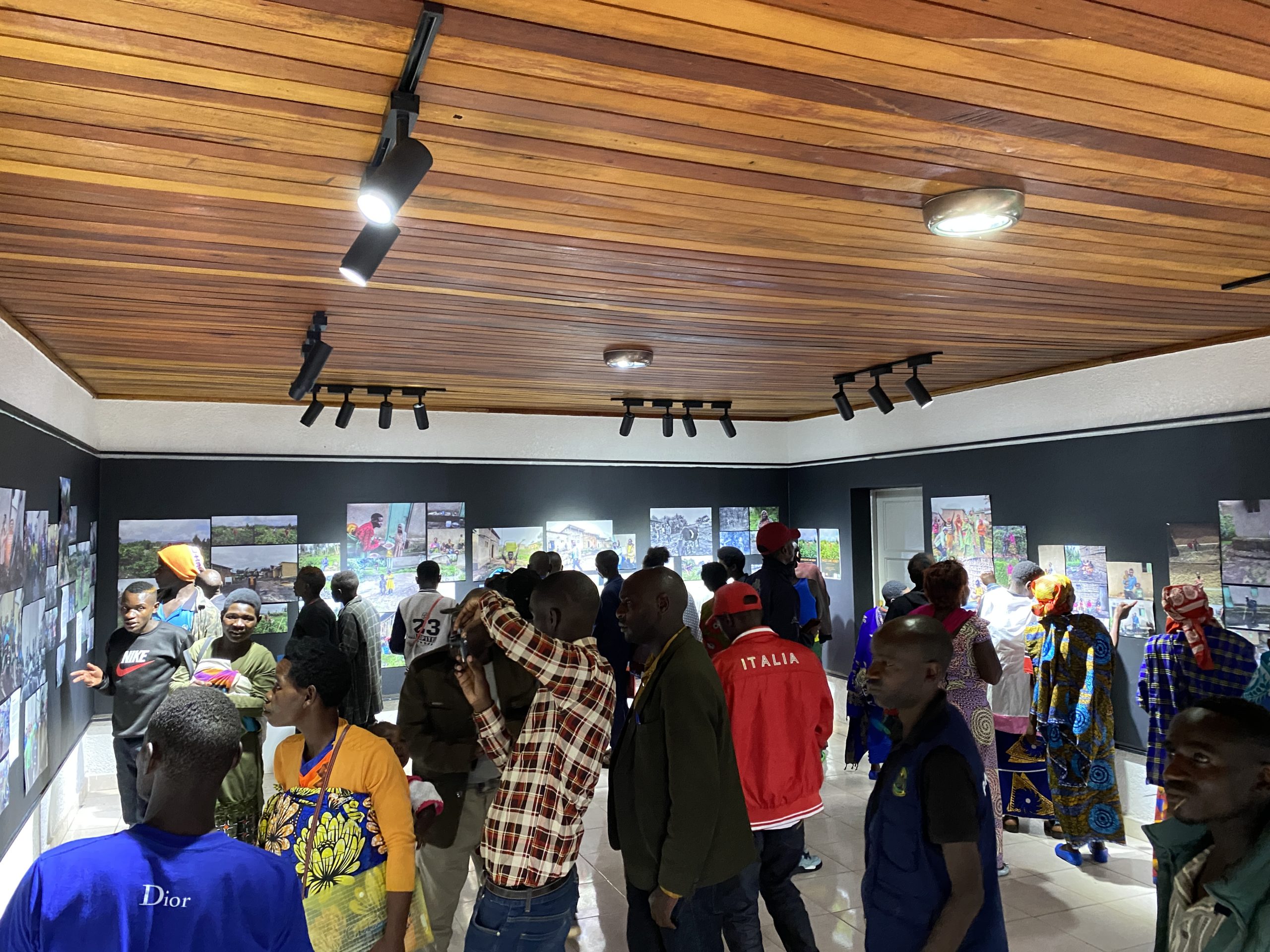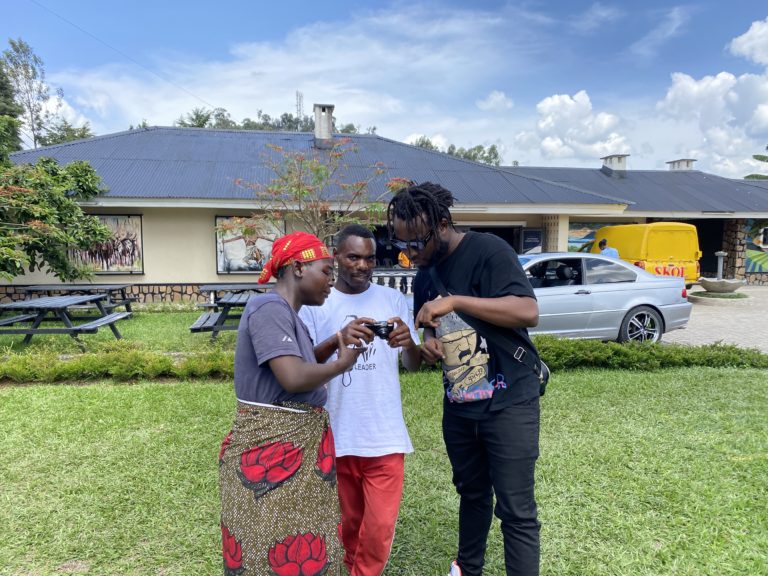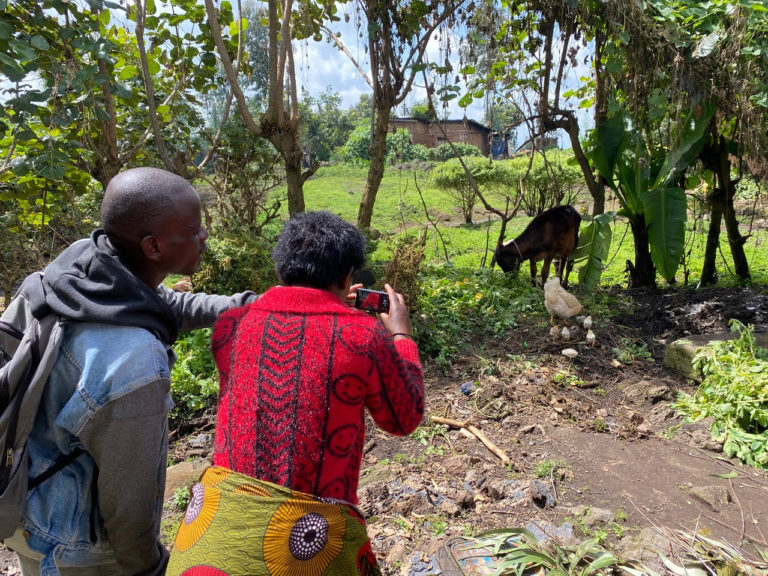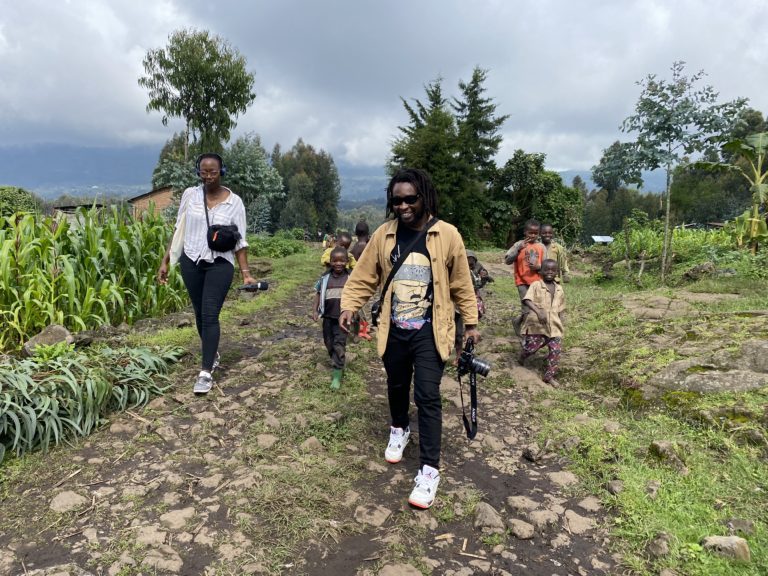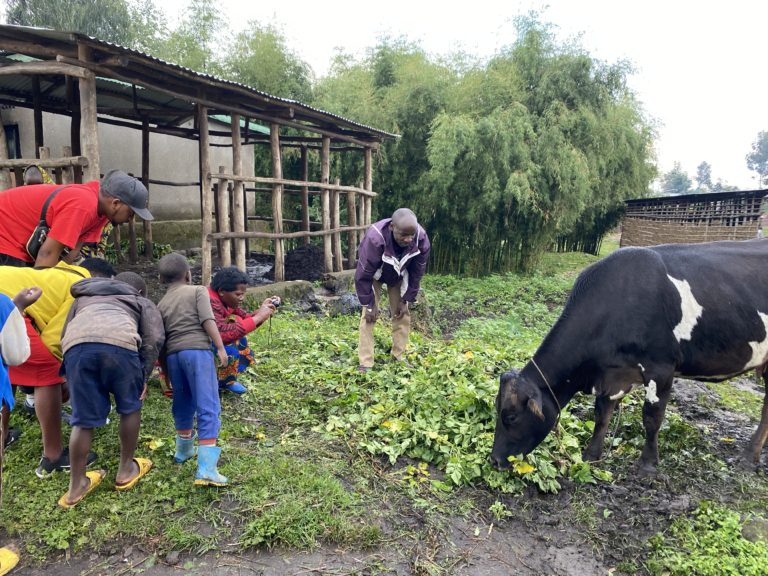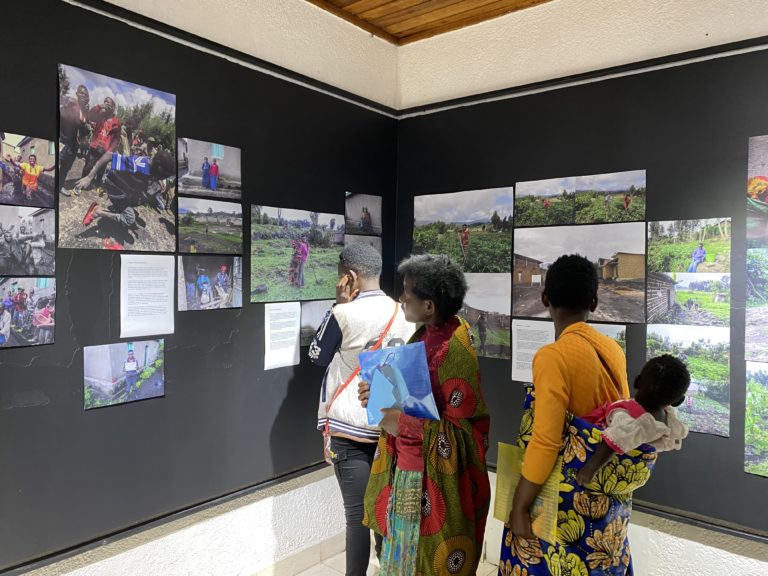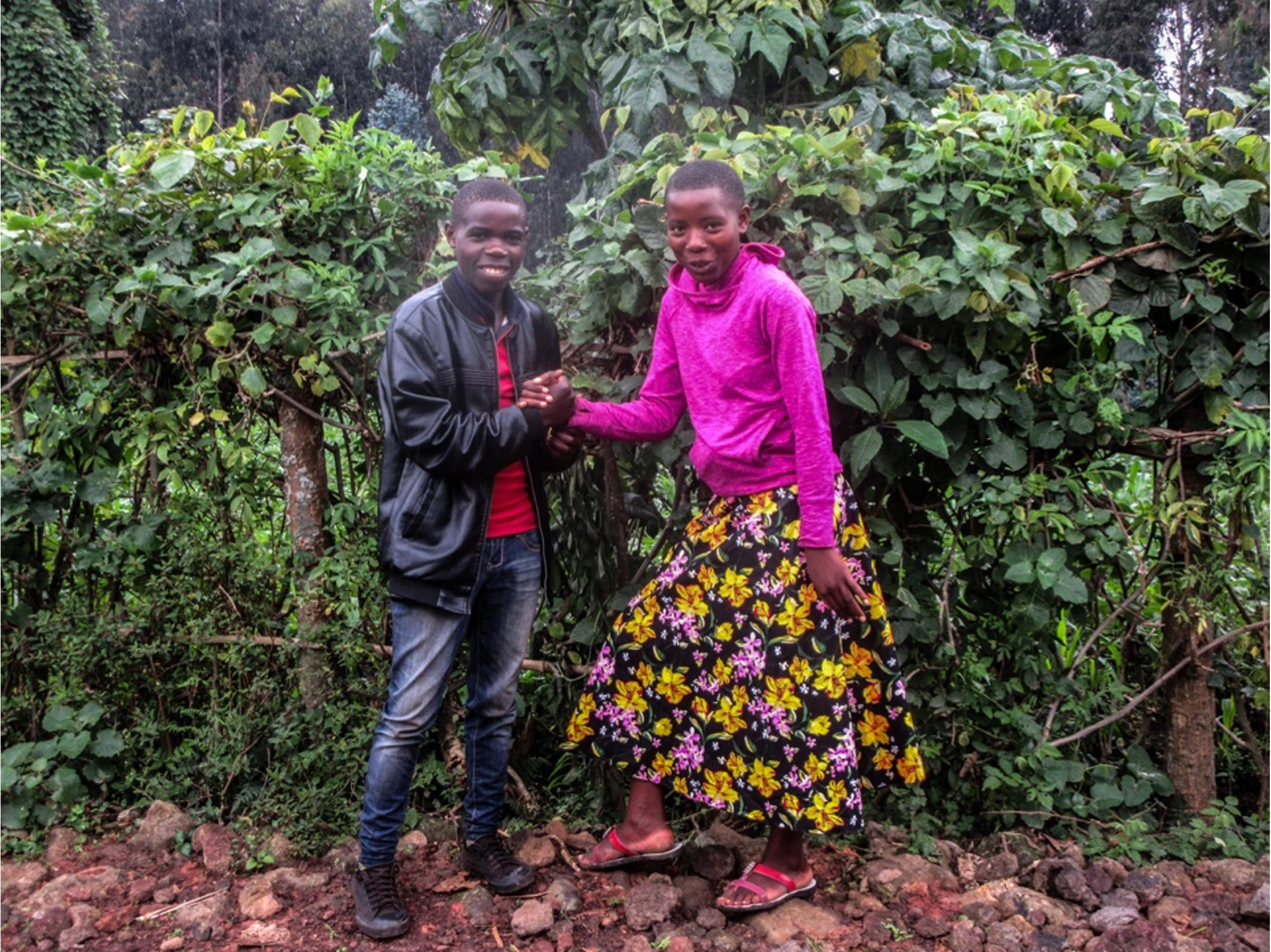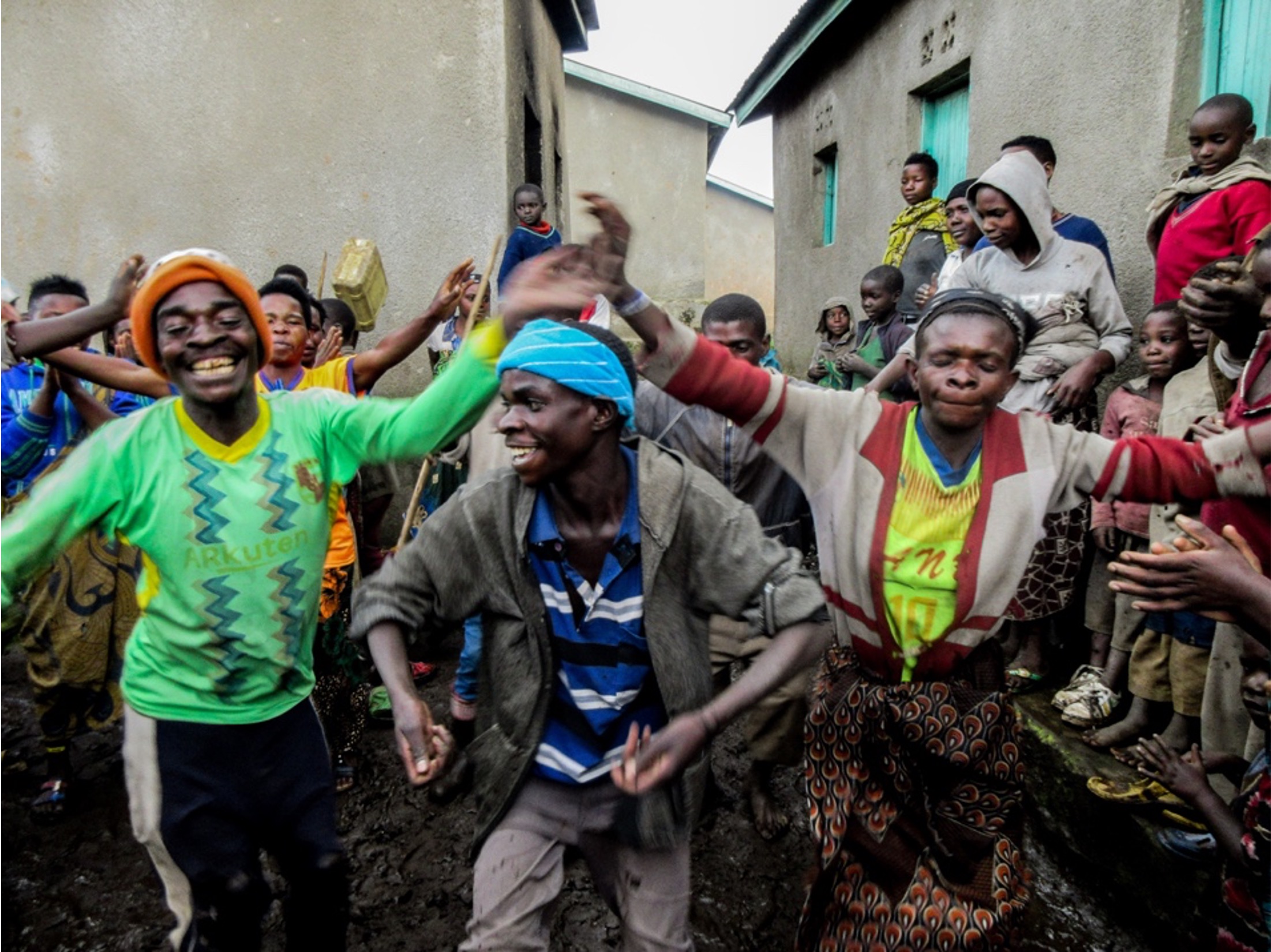This project used participatory photography to surface and share stories about long histories of discrimination experienced by a historically marginalized community in North West Rwanda.
Today Rwanda is home to 25-30,000 historically marginalized people (HMP) formerly known as Batwa. Often to be found living in the forest, and frequently described as indigenous to the Great Lakes, they have faced discrimination in Rwanda since pre-colonial times. Over the past century, with the establishment of national parks, these people have been evicted from their traditional lands and have experienced ongoing levels of socio-economic and cultural hardship, social discrimination and political marginalisation. These experiences of structural and social violence are overlaid with the effects of the 1994 genocide against the Tutsi in Rwanda, during which 30% of the Batwa population were also killed.
Over the last two decades the government has taken significant steps to reduce inequalities and promote social cohesion. However, public attitudes are slow to change and discrimination endures. One of the challenges for historically marginalized communities is thinking about how to form a new sense of identity away from the forest in a way that preserves their history and culture while also partaking in Rwanda’s new nation-building project.
Our project hoped to surface the complexity and emotional impact of long histories of discrimination whilst also supporting HMP community advocacy for changes in public perception and further development of government policy. Bringing together two partners, advocacy group AIMPO and the Kigali Center for Photography, we co-designed a photography workshop and exhibition with a remote rural community in the village of Nyabageni.


